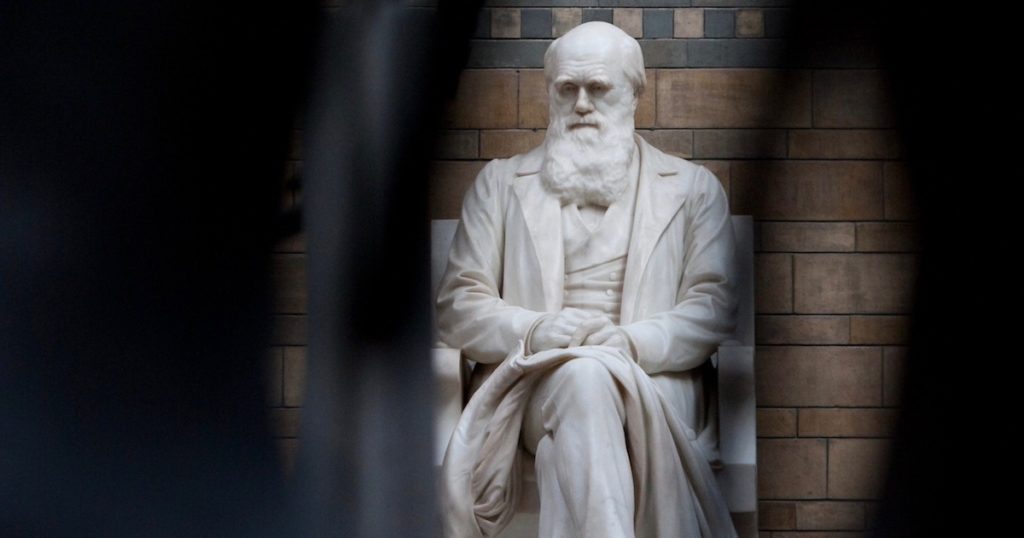 Evolution
Evolution
 Intelligent Design
Intelligent Design
Repair Trust in Science? In Science Magazine, Forrest Mims Replies

As Wesley Smith notes today, public faith in science has been damaged for multiple reasons. How can it be repaired? Forrest Mims, an engineer and atmospheric science researcher and fellow of the Center for Science and Culture, has just published an excellent eLetter in Science Magazine that is of relevance to that question. Mims’s letter is in response to an editorial, “It matters who does science,” by chemist H. Holden Thorp, former chancellor of the University of North Carolina at Chapel Hill.
Restoring Faith in Science
Thorp’s article is thoughtful, reminding us that “scientists are actual people” who are “conspicuously and magnificently human — with all the assets and flaws that humans possess.” He lays out a pathway for restoring the public’s trust in science:
For some, the notion that scientists are subject to human error and frailty weakens science in the public eye. But scientists shouldn’t be afraid to acknowledge their humanity. Individual scientists are always going to make a mistake eventually, and the objective truth that they claim to be espousing is always going to be revised. When this happens, the public understandably loses trust. The solution to this problem is doing the hard work of explaining how scientific consensus is reached — and that this process corrects for the human errors in the long run.
As an example of a brilliant scientist who was nonetheless an imperfect human with some false ideas, Thorp mentions Charles Darwin:
For example, Charles Darwin made major contributions to the most important idea in biology, but his book The Descent of Man contained many incorrect assertions about race and gender that reflected his adherence to prevalent social ideas of his time.
Mims’s letter responds:
Thorp’s essay is so well stated that the general public would benefit from it. However, his assertion that “Charles Darwin made major contributions to the most important idea in biology” raised a major question in my mind, for I read his piece shortly after reading an article in Physics Today. The latter reported in detail on “Visible light can track molecules with nanometer and millisecond resolution, even amid the complexity of a living cell.” (1)
The Physics Today article covered the latest progress in observing the astonishing kinesin molecular motors that rapidly “run” along microtubules in cells while carrying large cargoes to where they are needed. While Darwin had no knowledge of the inner workings of cells, today’s molecular biologists have yet to explain the origin of the remarkable number and variety of protein motors in each of our cells.
1. Johanna L. Miller, Fluorescence microscopy watches proteins at their own scale,” Physics Today, 76, May, 2023, https://doi.org/10.1063/PT.3.5230
Mims makes valid points about the lack of evolutionary explanations for complex molecular motors.
“Trust the Science”
Science should be commended for publishing Thorp’s article, as he is critical of the soundbite “trust the science,” which seems designed to short-circuit real scientific discussion that is important for finding the truth:
The soundbite “trust the science” has been circulating recently. This framing is unfortunate. Because “the science” in this context is usually a snapshot of ideas or facts in a particular moment — and often from the perspective of a small number of people (or even one person). It would have been better to use a phrase like “trust the scientific process,” which would imply that science is what we know now, the product of the work of many people over time, and principles that have reached consensus in the scientific community through established processes of peer review and transparent disclosure.
I would like to go along with what Thorp is saying, but sometimes I fear that the “scientific process” does not always work as it’s supposed to. After all, that process is run by scientists who, as Thorp notes, are only human. Indeed, Thorp closes by again offering the important reminder that scientists are not perfectly objective robots:
Scientists should embrace their humanity rather than pretending that they are a bunch of automatons who instantly reach perfectly objective conclusions. That will be more work both in terms of ensuring that science represents that humanity and in explaining how it all works to the public. But in return, society will get better and more just science, and it will allow scientists to immerse themselves in the glorious, messy process of always striving for a greater understanding of the truth.
We live in an imperfect world, but I sincerely hope Thorp is right and that the messiness of humanity does not interfere with his optimistic vision of scientific progress.
